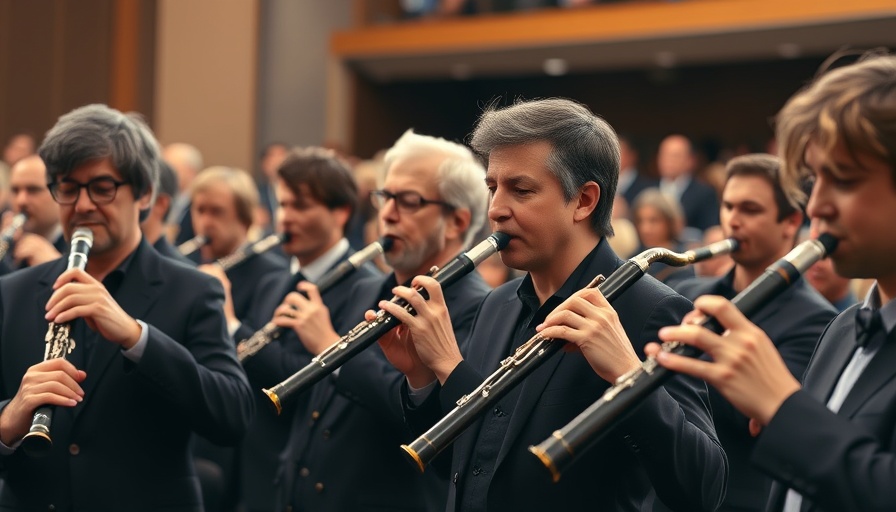
Harmony Amidst Controversy: The Impact of DEI Policies
The recent executive order issued by President Trump banning Diversity, Equity, and Inclusion (DEI) programs throughout the government highlighted the tension between the administration's policies and community efforts to promote diversity. This action had significant implications, forcing the United States Marine Band to cancel a collaborative concert with teens from Equity Arc, a nonprofit dedicated to mentoring young musicians of color. Despite this setback, veteran military musicians showcased their commitment to inclusivity by stepping in to create harmony in an otherwise discordant environment.
Understanding the DEI Debate: A Broader Context
To grasp the implications of this pivot away from DEI initiatives, one must delve deeper into the rationale behind these programs: promoting equal opportunities in traditionally underrepresented demographics. Proponents argue that these initiatives foster a more equitable society and reflect the diverse makeup of America. Critics, particularly supporters of the recent executive order, claim that such programs may infringe on meritocracy, sparking a vigorous debate about how best to achieve inclusion and equity.
The Role of Music in Bridging Divides
Music has long served as a universal bridge that transcends barriers, allowing diverse voices to unite. The canceled concert was more than just an entertainment event; it represented a collaborative effort to nurture the next generation of artists from varied backgrounds. The substitute participation of seasoned military musicians highlights the powerful impact music can have in fostering understanding and connection amid sociopolitical strife.
Lessons from Community Responses
In light of the executive order and the cancellation of the concert, community responses underscore the value of resilience. For example, organizations like Equity Arc continue to seek opportunities to uplift and empower underrepresented youth through music. This grassroots response demonstrates how local initiatives can counteract setbacks imposed by federal policy, emphasizing the importance of community and collective action in achieving social objectives.
Future Trends in DEI Programs
As the national conversation on DEI evolves, it's essential to consider the future landscape. Emerging trends suggest a potential shift towards more localized DEI initiatives that may operate independently of federal mandates. This could lead to a new era of grassroots movements championing diversity across various sectors, including the arts, education, and business.
Common Misconceptions about DEI Initiatives
Many misconceptions surround DEI programs, fueling resistance to their implementation. One common myth is that DEI efforts favor certain groups at the expense of others. In reality, these programs are designed to level the playing field, offering all individuals, regardless of their background, a fair chance at success. Clarifying these misconceptions can facilitate more informed discussions around the necessity and impact of DEI initiatives.
The Emotional Impact of Inclusion and Exclusion
The emotional ramifications of federal policies on diversity and inclusion resonate deeply with affected communities. The cancellation of collaborative events like the Marine Band concert can leave young artists feeling sidelined and discouraged. Conversely, efforts to maintain inclusivity foster hope and motivation among youth, reminding them of their potential and the importance of diverse representation in the arts.
The recent challenges posed by the executive order provide an opportunity for reflection and action within communities. As conversations about diversity, equity, and inclusion continue, it is crucial that we all stay engaged, informed, and ready to advocate for initiatives that promote a more inclusive society. Let’s take these lessons to heart and push for a future where every voice, regardless of background, finds a platform to be heard.
 Add Element
Add Element  Add Row
Add Row 



 Add Row
Add Row  Add
Add 


Write A Comment